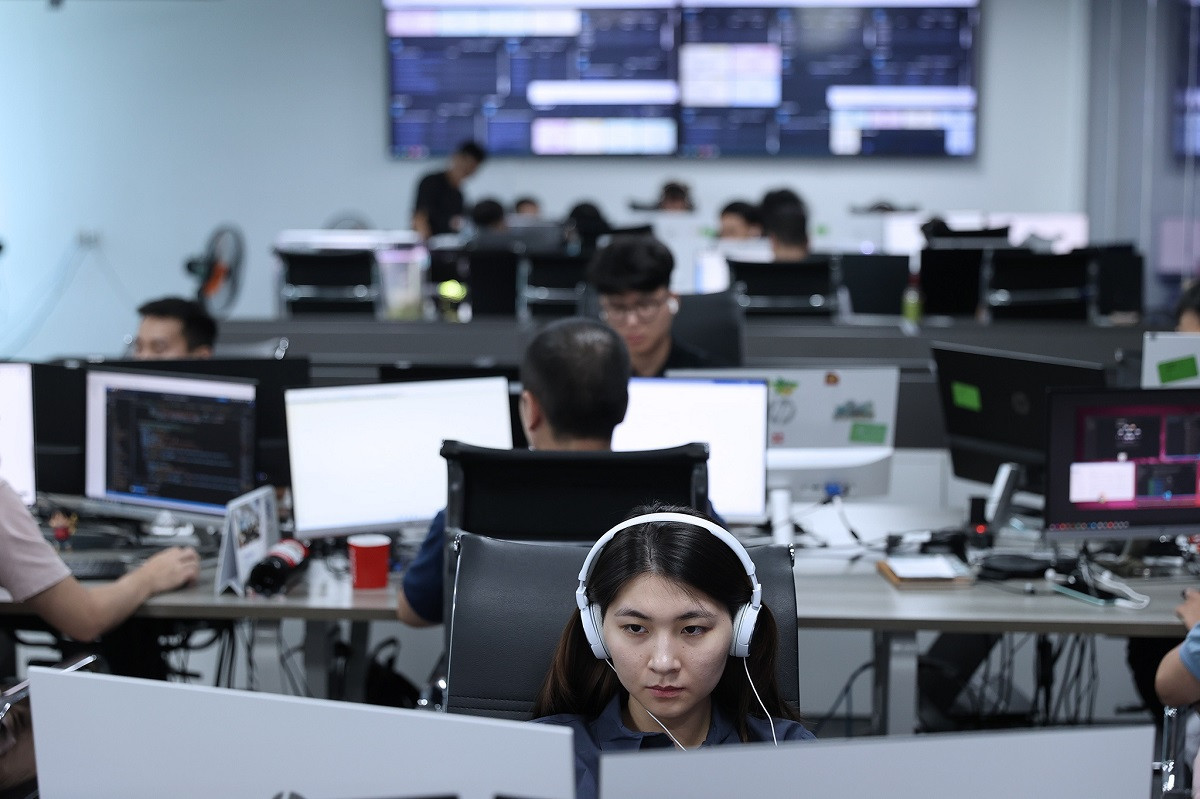
“When joining the global supply chain, this will bring benefits not only to Vietnam, but also to the world, as the world needs Vietnam’s workers. At the Ministry of Information and Communications (MIC), we regularly meet delegations of businesses from Japan, South Korea, Europe, the US and Canada. The countries are all thirsty for workers in digital technology,” said Nguyen Thanh Tuyen, deputy director of the MIC’s Authority of ICT at a recent seminar held in HCM City.
Chair of Kanagawa province in Japan has said that he hoped Vietnamese IT firms would come to Kanagawa to set up their offices and help digital transformation. In June 2024, at a seminar in Fukuoka, the city’s leaders also said they are opening the doors widely to Vietnamese IT firms to set up offices, because the Japan’s fourth largest economic zone is seriously lacking workers.
“Most recently, I have met the CEO of the Information Technology Industry Council and he said he wanted Vietnam to become an important link in the global human resources supply chain in the fields of semiconductor and AI, because young Americans now prefer studying economics and sociology rather than IT,” Tuyen said.
Reports by international institutions all show that Vietnam has every reason to become an important link in the global human resources supply chain, as the Vietnamese technological workforce has cemented its position in global rankings.
The 2023 IT Topdev Report showed that Vietnam ranks 28th globally in developers’ skills, and second in Asia Pacific in technical skills.
A survey by UNESCO found that Vietnam ranks 10th worldwide in engineer training, after Russia, the US, Iran, Japan, South Korea, Indonesia, Ukraine, Mexico and France.
The holes that need to be filled up
Phung Viet Thang, Country Director of Intel Vietnam, applauds the great potential in human resources in digital technology in Vietnam. The young population adapts to new technologies quickly and learns how to work creatively in the technological environment.
However, he warned that ‘if Vietnam doesn’t do anything’, all the favorable conditions will be just ‘potential’. Along with popularizing its human resource potential, Vietnam needs to turn the potential into real practical value.
This real capability means not only deep knowledge in a certain field, but also soft skills such as teamwork and problem solving skills.
Pham Minh Tuan, FPT deputy president, pointed out another problem of the Vietnamese workforce – lack of creativity.
“Vietnamese developers have good development skills which allow them to do a part of products well, but their skills are not good enough to create entire big products,” he said, adding that Vietnam’s education needs to pay attention to solve this question.
“Vietnamese workers need to be equipped with knowledge to create software products that serve millions of users,” he commented.
Dr Le Quan from Fulbright Vietnam University said Fulbright has a research team on the development of human resources in semiconductors but Vietnam still doesn’t have a semiconductor university major.
Those majoring in electronics need to study about semiconductor to be able to work in semiconductor design. Students in Materials Science need to learn about production to work at factories.
Meanwhile, those who study automation can join all the phases at a manufacturing factory, or packaging and testing facilities in Vietnam.
“When we exchange information with universities, we have found a gap in training programs. Most university graduates need to have additional training before they can work,” he said.
Topdev Report about the 2023 IT Market showed that only 30 percent of IT graduates can satisfy enterprises’ requirements, while 70 percent need 3-6 months of training.
One of the solutions to improving Vietnam’s workforce in digital technology, according to experts, is work environments at global enterprises.
“The enterprises can play an extremely important role in attracting and cultivating talents in Vietnam,” Thang said, adding that Intel Vietnam has kicked off a cooperation program on training in AI with the Ministry of Education and Training.
Thang praised Vietnam’s plan to produce 50,000 engineers in the semiconductor industry by 2030 with a total budget of VND26 trillion for the program.
Thai Khang